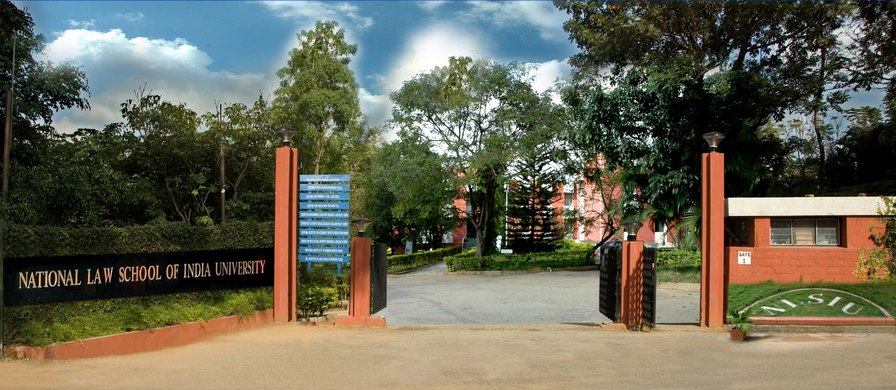
NLSIU was the first National Law University established in India in 1986. The premier law school was set up with a mission to pioneer legal education reforms, and to anchor the transformation of the Indian legal system through research and policy interventions.
Consequently, NLSIU was one of the first institutions in the country to introduce the five-year integrated law degree at the undergraduate level with the commencement of the first batch in 1988. And for over 35 years now, the University has irrefutably remained a leader in the field of legal education in the country. This long-standing record has been possible due to the strong collaborations between legal academics, the Bar, the Bench and the State Government of Karnataka.
Governance
NLSIU was established under the National Law School of India Act (Karnataka Act 22 of 1986), which was notified in the official Gazette August 29, 1987. This Act conferred complete administrative and academic autonomy to the University which is housed in the Bengaluru University campus. It is the basic governing document for the University and all persons associated with it.
The University’s Chancellor is the Chief Justice of India, and the Chairman of the Bar Council of India is the Chairman of the General Council of the University. The University’s Governing bodies include representatives from the Bar Council of India, the Judiciary, the Government of Karnataka, and the Law School faculty.
History & Role of the BCI
The National Law School of India University was set up through a unique collaboration between the members of the Bar, legal academia, and the judiciary, to be the pioneering institute of legal education in India. The idea of establishing a national institution to act as the pace-setter of legal education came up before the Bar Council of India (BCI) in the context of the Council’s statutory responsibility to maintain the standard of professional legal education under the Advocates’ Act, 1961. The idea gained strength in the Legal Education Committee of the BCI and eventually assumed the character of an autonomous institution with “deemed University” status from the University Grants Commission. The efforts of our founding director Prof. Madhava Menon, along with co-operation of the Karnataka State Government and Bangalore University, and the initiatives of senior members of the BCI, made these aspirations viable.
The BCI (in consultation with the Chancellor), the Bar Council of India Trust, the National Law School of India University Society, and the Government of Karnataka are empowered to nominate members to the General, Executive, and Academic Councils as described in the Schedule of the Act. The Bar Council of India Trust (‘BCI Trust’) and National Law School of India Society (‘NLSI Society’) are instruments of the BCI. The BCI Trust, a public charitable trust, registered the NLSI Society under the Karnataka Societies Registration Act, 1960, the objectives of which include the establishment, maintenance, and development of the University.
Vision
NLSIU has consistently strived to push for a paradigm shift in the field of legal education. To achieve this vision, NLSIU places high emphasis on the following practices:
- Creating curricular experiences on par with highest contemporary standards
- Providing socially relevant learning experiences to its students
- Enabling scholars to generate impactful reforms that are not only systematic but also sustainable
- Enabling digitization of academic and research resources
- With an array of research centres, projects underway and a team of expert faculty and administrators, NLSIU seeks to create opportunities that will open doors to a more inclusive, progressive, and innovative approach to legal education.
University life
NLSIU’s sprawling 23-acre campus in Nagarabhavi, Bengaluru, is home to a vibrant student community that includes student associations and events. Students get to engage in moot courts and debates at a competitive level, both domestically and internationally. Equipped with a state-of-the-art library, multiple academic centres, student housing and essential facilities, the University is committed to serve as a breeding ground for future leaders.

